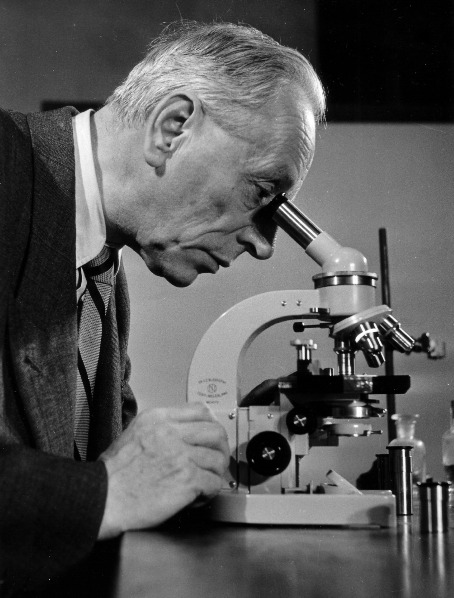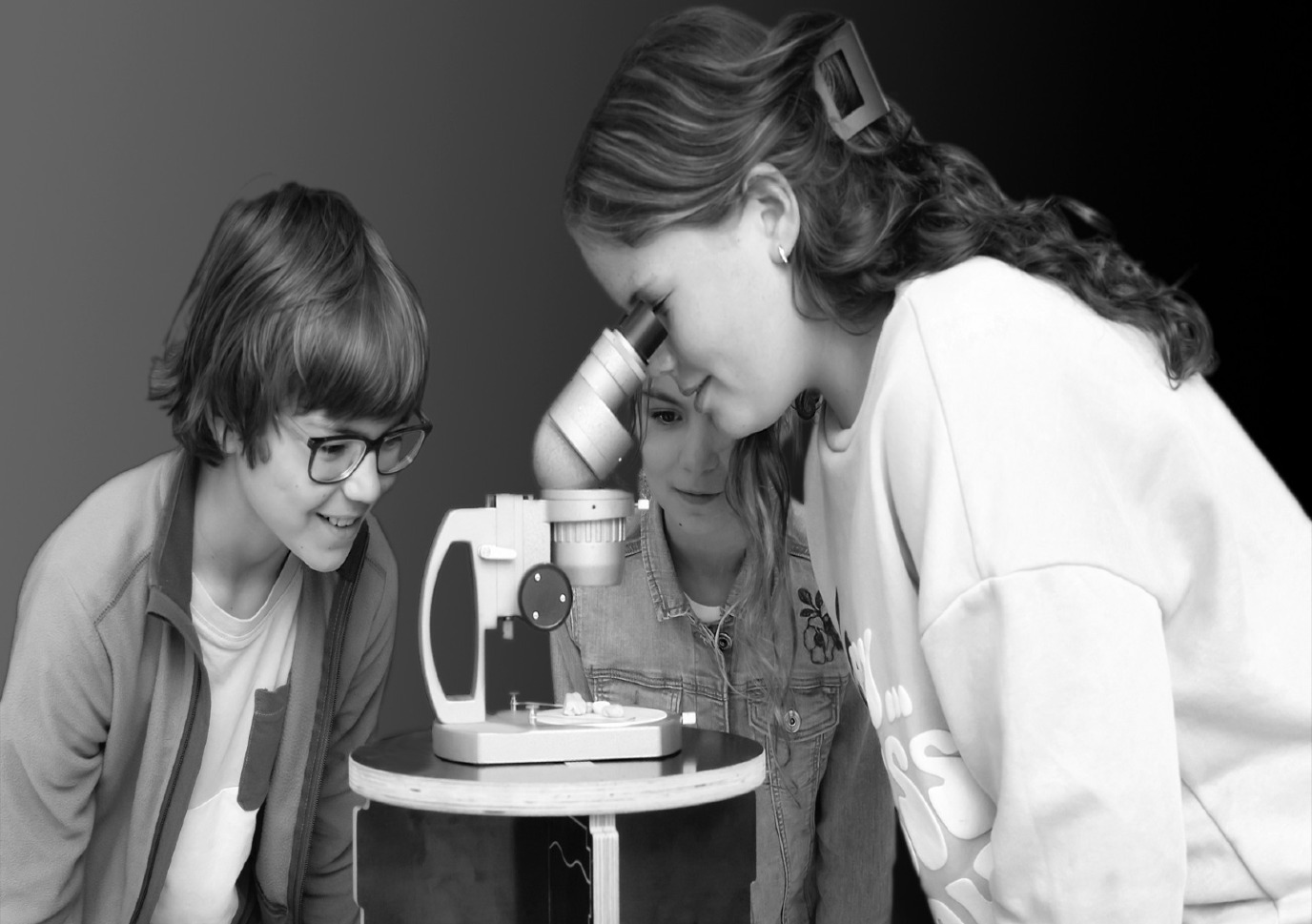70 microscopen bij viering 70 jaar Nobelprijs

De Rijksuniversiteit Groningen viert op 3 en 4 november het platina jubileum van de Nobelprijs Natuurkunde voor Frits Zernike , uitvinder van de fasecontrastmicroscoop. Op 3 november is er een symposium en publiekslezing, op 4 november viert de hele provincie mee. Iedereen kan die dag op bijna 70 bijzondere plekken in Stad en Ommeland met microscopen de microwereld ontdekken. Bezoekers worden aangemoedigd zelf iets mee te nemen voor onder de microscoop. Een van de microscopen is een schenking uit het familiearchief van Zernike.
Familie Zernike schenkt microscoop
Op tien deelnemende locaties van de Microscopendag staat een fasecontrastmicroscoop van de internationaal toonaangevende firma Zeiss, gebaseerd op de uitvinding van Frits Zernike waarvoor hij in 1953 de Nobelprijs ontving. Bezoekers aan het Universiteitsmuseum kunnen een pareltje bewonderen. Daar staat een microscoop uit het familiearchief van Zernike. Kleinzoon Frits Zernike overhandigt deze een dag eerder in het Academiegebouw aan demissionair minister Robbert Dijkgraaf van Onderwijs, Cultuur en Wetenschap.
Publieksdag van Vesting Bourtange tot molens
De 70 locaties van de Microscopendag zijn verspreid over de gehele provincie Groningen. Vesting Bourtange heeft bijvoorbeeld de middeleeuwse spijkers van zolder gehaald voor bestudering. De bezoekerscentra van het Groninger Landschap staan midden in de natuur en hebben allerlei onderzoeksonderwerpen om zich heen voor onder de lens. In Groningen-stad doet onder meer de Hortus Botanicus mee, een ware hotspot voor de microscopie. In Noorderhogebrug en Usquert doen de molens mee aan de publieksdag. Daarnaast doen alle Groningse bibliotheken die op zaterdag open zijn mee. Van 20.00 tot 21.00 uur is er een lezing in Bibliotheek Hoogezand door microscoopkunstenaar Wim van Egmond. Ook de centra van elektronenmicroscopie van zowel UMCG als RUG zijn geopend. Daar zijn rondleidingen voor groepen van maximaal 30 personen. Aanmelding is noodzakelijk. Alle locaties staan hier vermeld.

Blijvende herinnering
De microscopen zijn voor de deelnemende instellingen een blijvende herinnering aan de festiviteiten. Ze blijven in bezit van de instellingen en deze kunnen ze in de toekomst blijven gebruiken. Alle basisscholen en bibliotheken in de provincie ontvangen daarnaast een lesbrief over microscopie, Nobelprijzen en het werk van Zernike.
Symposium
Voorafgaand aan de publieksdag is er op 3 november een symposium, bestaande uit een dagprogramma met diverse lezingen over Zernike, diens uitvinding, zijn tijdgenoten en de toekenning van de Nobelprijs voor zijn werk. ’s Avonds spreekt onder meer kleinzoon Frits Zernike in het Academiegebouw.
Video
In deze video bezoeken we samen met Theo Jurriëns twee bijzondere locaties in de provincie Groningen waar op 4 november tijdens de Publieksdag microscopie een microscoop te vinden is. Ben je ook benieuwd wat de locaties gaan doen met de microscoop, wat er op 4 november allemaal nog meer te doen is en hoe je zelf ook een microscoop kunt winnen? Bekijk de video!
Meer informatie
Via Theo Jurriens.
Meer nieuws
-
10 februari 2026
Waarom slechts een klein aantal planeten geschikt is voor leven
-
09 februari 2026
Kunnen we de aarde de andere kant op laten draaien?
